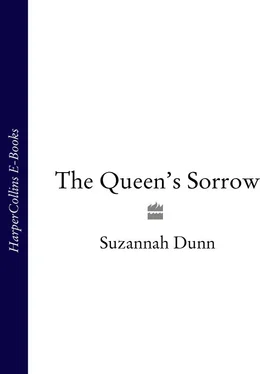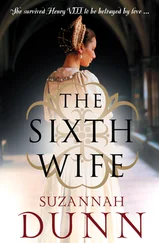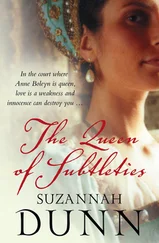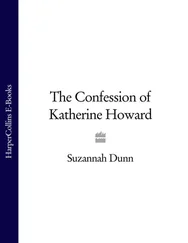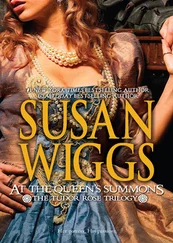1 ...6 7 8 10 11 12 ...15 The river was an easier place for Rafael to be – not only on it, but also on the quayside. There, he could stop and stand, facing south, soaking up whatever sunlight there was, and take his time to look. Breathing space. Once, he watched the dazzling royal barge being towed downstream. On that occasion, he could enjoy the luxury of being just one of the crowd.
If he wasn’t at or en route to and from the palace, nor in the Kitsons’ Hall for dinner, then he was up in his gloomy little north-east-facing room. That was where he spent the evenings. Downstairs, the Kitsons entertained themselves and their guests as the trestle tables were cleared and stacked away, music played and dancing attempted. Staff finished their various duties and then retreated to the kitchen, Rafael presumed, to gossip and play cards. Up in his room, having written home – a little, each evening, towards a weekly letter – Rafael would work on calculations, work on his design. He also spent a lot of time gazing from the window: hours, he spent, doing that. St Bartholomew’s Lane was below with nothing much to it, just houses, but linking Threadneedle Street and Throgmorton Street, so there was always someone passing through. Sometimes more than someone: gangs, probably apprentices on the loose, and, to judge from the whoops and kicking of a ball, good-natured enough, but he was very glad not to be down there. Later on, he’d see the Kitsons’ guests leaving, as comfortable defying curfew as anyone in any other city he’d ever visited, their way lit for them by torch-bearing boys.
His little window was glassed and had a curtain, for which he was grateful. No shutters, though, and he missed them – the window looked odd, to him, without them. Exposed. And in general, around the Kitson house and on the houses along his routes, he missed their sounds: the clunks and gratings as a household stirred at the start of a day and then as it settled down at the end. When he’d had enough of staring into the dusk, there was the mere rasp of curtain rings along a pole. Dusk, in England, took for ever. Worth watching, it would’ve been, if there’d been a sky to see, if there’d been light enough to cast shadows. But as it was, it just hung around outside, damp, like something mislaid.
From time to time in any evening, though, came something that made it sparkle: the booming of church bells. Sometimes his floor would shake with it, and he’d get down there to feel it. There were three churches just beyond the end of St Bartholomew’s Lane. A hundred in the square mile of London, he’d been told. For a Godless country, that was a lot of churches.
If Antonio wasn’t back by the nine o’clock curfew, he wouldn’t be coming back and Rafael would doze in the near-dark before waking to darkness and lighting a candle by which he’d get ready for bed.
Nights, he missed Leonor. Waking, he’d remember how, on his last morning, Francisco had climbed into bed and laid down beside him, thrown his rag-rabbit into the air, caught it, turned over and gone back to sleep.

In his second week, he got a bad cold. The surprise was that it’d taken that long, as all the Spaniards he came across had already been laid low. Especially Antonio, who had lolled around for days on end, hugging himself and barely raising his eyes, refusing to do the river-journey back to the Kitsons, imposing instead on friends at the palace. Well, now Rafael understood. For two days, he stayed at the Kitsons’, stayed in his room except at suppertime. Then the worst of the cold shifted, but only down to his throat where it stuck, itching, causing a cough which inflamed it further, particularly at night. After several days and nights of this, he was taking his place for supper when a cup was placed in front of him on the table. He swivelled to see the pale woman: a flash of a smile from her, her fingertips to her throat and a forced cough, It’s for your cough . And then she was gone – stepping back and away across the room – before he’d begun to thank her. He was touched, but mortified that his cough had been so noticeable. Under the faintly contemptuous glances of his neighbours, he raised the cup to his nose but was too blocked still to be able to smell it. He took a sip: honey, he detected, and something sharper. Two more sips and complete relief: something he’d stopped believing was possible. Enough remained in the cup for him to take it to his room and he got his first good night’s sleep for almost a week.
The following evening, the woman did the same and this time he was ready to thank her. The evening after that, too, and the one after that. But the next one, he thanked her as usual and said, ‘It’s good, now,’ and, smiling, raised his hand – Enough, thank you – which she must have understood because that was the last of it.
He still felt rotten for much of the time, because of indigestion. There was so much meat in England and so little else. Meat, even on Wednesdays, Fridays, Saturdays, and even in the court of this Catholic queen. Clearly she was bringing back only some of the Catholic ways. The Kitson family went to Mass, but everybody did now that the queen required it. There was no other evidence of their Catholicism. Rafael didn’t know if he knew much about Protestantism. He knew that a Protestant priest would speak in English, not Latin, which he found hard to imagine: it didn’t seem, to him, to be a language for wonders. And Protestants believed they could talk to God, he knew: offer up their every hope and grievance and He’d hear them, He’d listen to them. They debated the contents of the Bible, too, as if it were up for debate and by anyone.
Rafael had been going with the Kitson household to Mass at St Bartholomew’s on the corner, but he missed a few days when he had his cold and, afterwards, didn’t resume. He realised that if anyone marked his absence, they’d assume he was attending Spanish Masses at the palace. Likewise, his fellow countrymen, if they considered it at all, would assume that he was going to Mass with the Kitsons. At home, for years, his attendance at church had been the bare minimum. Church distracted him from God – that was how he felt – and perhaps this was because of the gloom of the buildings when – he was sure of it – God was in light. He didn’t know how his brothers could bear it, that gloom, the two brothers of his who were priests. He’d feel God’s presence sometimes when he was riding, or in the garden, or making calculations, and often when he glanced at his son. The feeling was always both awesome and intimate. It was a feeling he hadn’t yet had in England.
When he was young, he’d talked about that feeling with his friends and many of them had felt the same. The Spanish Church, though, would judge it heretical; so now, older and, he hoped, wiser, he was careful to keep it to himself. He, whose family, Jewish-looking, Jewish-named, had no room for error.
During one of his visits to the Kitsons’ local church, he’d glimpsed the pale woman. She’d had her eyes closed, as did many people – but they were dozing, he was sure, and she was biting her lip. He saw there was a vigilance about her.
Towards the end of the second week, Rafael was advised by an official in the Spanish office to abandon his project. The strain on the prince’s budget – two households to support, the one he’d brought with him and the one his bride had assembled for him – meant that there was no guarantee that Rafael would be paid, nor even that he’d be reimbursed for what he planned to spend soon on materials. ‘But you must’ve known,’ Rafael objected. The prince had been in England for a month. ‘You could’ve stopped me coming.’
Читать дальше
